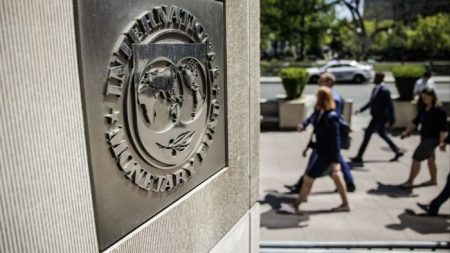Unlock the Editor’s Digest for free
Roula Khalaf, Editor of the FT, selects her favourite stories in this weekly newsletter.
Israel’s military said on Friday that its soldiers had made errors and violated its operating procedures in their strike on a humanitarian convoy this week that killed seven aid workers.
Officials said the attack on workers from World Central Kitchen, one of the main providers of food to Gaza’s besieged population, came after Israeli forces mistakenly identified one of the WCK staff who was carrying a bag as a gunman.
Israel’s military said it had dismissed two officers over the strike, and also formally reprimanded two others, including the commander of the Southern Command for his overall responsibility for the incident.
The killings of the workers — including three Britons, an Australian, a Pole, a Palestinian and a dual US-Canadian citizen — have triggered a wave of international condemnation.
They have also renewed scrutiny of the conduct of Israeli forces in the Palestinian enclave, where aid groups have warned that a famine is setting in.
Yoav Har-Even, a retired military officer who led an investigation, confirmed on Friday that WCK had correctly provided the Israeli military with advance information about its convoy, and that the vehicles’ roofs were emblazoned with WCK’s logo.
However, he said information about the convoy had not been passed all the way down the chain of command, while the cameras on the Israeli military’s drones could not see the WCK logos at night.
Israeli forces killed the aid workers in three strikes on the WCK vehicles. The attacks targeted the survivors of each preceding strike until all members of the convoy were dead.
In a call with Israeli Prime Minister Benjamin Netanyahu on Thursday, US President Joe Biden, who has been the Jewish state’s staunchest ally in its war with Hamas, warned that continued US support would depend on whether Israel took “specific, concrete and measurable steps to address civilian harm, humanitarian suffering, and the safety of aid workers”.
Jamie McGoldrick, the UN humanitarian co-ordinator for the occupied Palestinian Territory, said on Tuesday that the Israeli strike on the WCK convoy was “not an isolated incident”, adding that at least 196 aid workers had been killed in Gaza and the occupied West Bank since the start of the war in October.
“This is nearly three times the death toll recorded in any single conflict in a year,” he said.
According to Har-Even, the WCK convoy left the pier in central Gaza where maritime aid had been docking at about 10pm local time on Monday before driving south along Gaza’s coast.
At 10.20pm the convoy was “joined” by three additional vehicles, including a truck on which Israeli forces subsequently identified a gunman. The military contacted WCK for information about what was happening but was unable to reach the convoy.
The convoy and other vehicles drove to a hangar, where further gunmen were seen, whom Israeli forces identified as belonging to Hamas.
At about 10.55pm the vehicles began leaving the hangar. One car with “two to four” armed men drove north, while three vehicles drove south. Har-Even said that Israeli forces began preparing to target the vehicle after misidentifying one of the WCK staff as a gunman.
“The forces that conducted the strike did not know they were striking WCK vehicles,” Har-Even said. “They were convinced that they were targeting Hamas operatives in vehicles.”
At 11.09pm an Israeli drone struck the first car. When the survivors of that strike got out of the car and climbed into the second car, Israeli forces targeted that car too, at 11.11pm. After the survivors of the second strike got into the third WCK car, Israeli forces hit it as well two minutes later.
Har-Even said this sequence of strikes was a “grave mistake” and a “breach of the army’s standard operating procedures”.
He said the findings had been transferred to the military advocate general, who would now determine whether to open a criminal investigation.
Israel’s offensive in Gaza has killed about 33,000 people, according to Palestinian officials, as well as displacing 1.7mn of the enclave’s inhabitants and reducing huge swaths of the territory to rubble.
The UN warned last month that 1.1mn people in Gaza faced “catastrophic levels of food insecurity” and warned of a “staggering escalation” in the number of children suffering from acute malnutrition.
Israel launched its assault in response to Hamas’s October 7 attack on the country, during which militants killed 1,200 people and took another 250 hostage, according to Israeli officials.
Read the full article here












